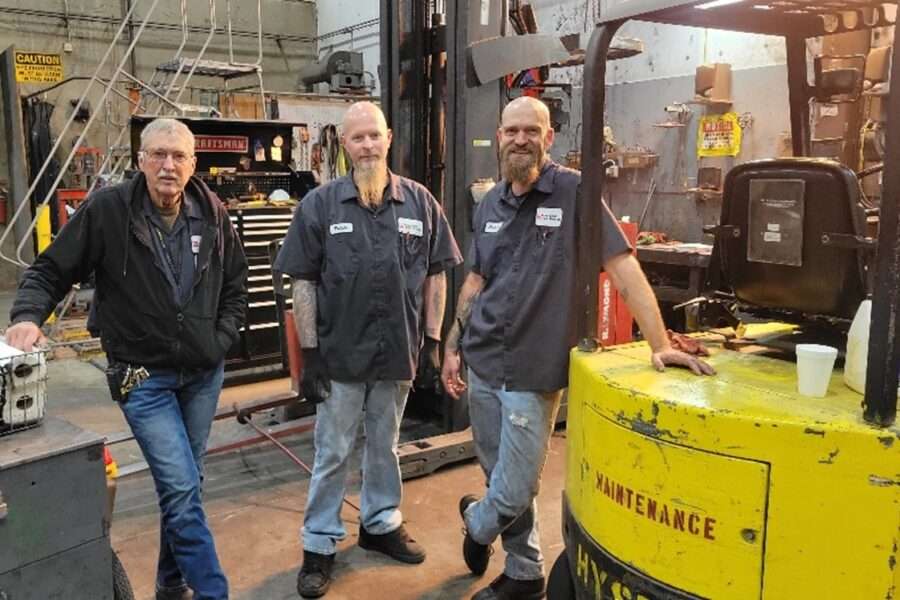In the bustling world of logistics and distribution, where time is of the essence, a sudden power outage can throw an entire operation into disarray. Recently, the Farr West Distribution Center faced a daunting challenge when a damaged power line near the facility caused a three-hour power outage. In the face of adversity, the distribution team sprang into action to restore normalcy and keep the wheels of commerce, and the wheels on the delivery trucks, turning at full speed. Through the extraordinary efforts of the maintenance team, and many others, they took the intricate steps to get everything back on track.
The distribution center relies on electricity for every facet of its operations. From the lights that guide the way to the power that charges the battery-operated forklifts and pallet jacks, every component of the facility hinges on a steady supply of electricity.
When the lights go out, the first crucial step for the maintenance team is to ensure that specific protocols are meticulously addressed. They must verify that the generators are up and running, take the correct steps in the refrigeration compressor room and ensure the fire system is in the correct mode.
Maintaining lighting is paramount for safety during an outage. Though limited, the emergency lighting scattered throughout the facility is sufficient to guide team members safely to gathering points.
The Kosan, which sorts and delivers packages from the receiving dock into the module/general merchandise area, is heavily dependent on power. Meanwhile, the refrigeration area, the largest electricity consumer on-site, keeps perishable goods at the right temperature. This includes frozen foods, meat, deli, milk, and produce, where maintaining the right conditions is critical.
Bananas, highly sensitive to temperature, rely on power to maintain a specific range for ripening and quality. Electricity powers glycol pumps and air flow fans, essential to prevent bananas from overripening. Linden Abshire, an AFS team member and an expert in ammonia/glycol systems, played a pivotal role in restoring the system after the power outage. Linden was monitoring the systems from home and was on site withing minutes of the power being restored to help.
Numerous other systems rely on electricity, including high-speed doors, air compressors, electric motors, conveyors, dock doors, lights and safety indicators. Communication systems used by forklift operators and selectors also depend on power, disrupting workflow when it’s unavailable.

Computers for various operations, such as loading, receiving, invoicing, customer service and order processing, experience a significant reduction in functionality without power. The interruption extends to printers, affecting the printing of pallet labels, invoices, and load sheets.
The facility’s software programs are hosted on servers, and uninterrupted power supplies maintain the servers until the diesel generators kick in. These generators are crucial, and their weekly testing ensures their readiness for emergencies like power outages.
During a power outage, not much work can be performed. However, when the lights come back on, the maintenance team, along with many other team members, go into turbo mode. Some systems restart automatically, but others require manual intervention.
The team’s mission is to bring everything back to life, ensuring production staff have the necessary resources to move cases safely. They must check the operation of a wide array of systems, from the Kosan and fire system to refrigeration, cranes, conveyors, battery changers, lighting, doors and more. The facility’s computers, heaters, and air conditioners all need to be rebooted, and even the café’s stoves and ovens are part of the restart process.
“In the face of adversity, the team at the distribution center has again demonstrated the power of resilience, dedication and teamwork,” said Glen Keysaw, vice president of distribution. “Their impressive commitment to restoring order and keeping the facility running smoothly is a testament to the vital role they play in the logistics and distribution side of AFS as we continue
serving our member retailers.”



